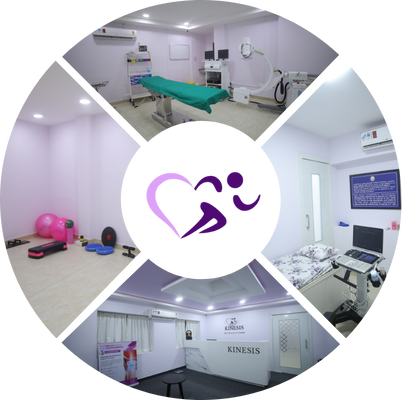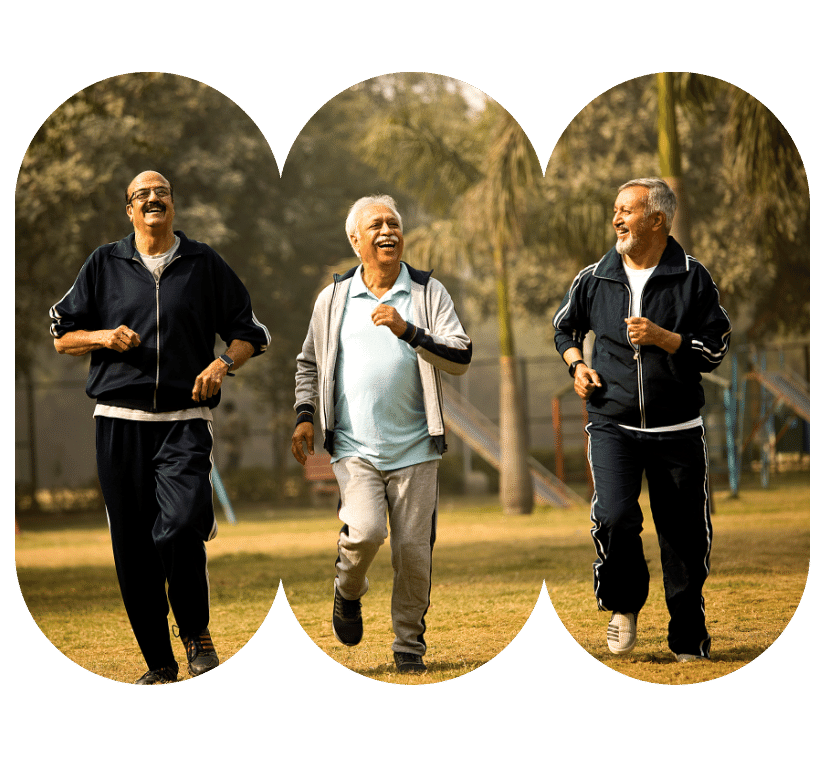Common Wrist Sports Injuries: Wrist Injury Treatment in Chennai at Kinesis Pain Speciality Centre
Participation in sports and physical activities can sometimes lead to wrist injury treatment in chennai. Understanding the types of injuries that can occur is crucial for effective treatment and prevention. Common wrist sports injuries include:
- Wrist Sprain: Overstretching or tearing of the ligaments that support the wrist joint, often from a sudden impact or twist.
- Wrist Fractures: Breaks in the bones of the wrist, which may involve the radius, ulna, or the smaller bones of the wrist (carpals).
- TFCC Tear: Damage to the triangular fibrocartilage complex (TFCC), a structure that stabilizes the wrist, often due to repetitive stress or sudden twisting.
- Carpal Tunnel Syndrome: Compression of the median nerve at the wrist injury treatment in chennai, leading to pain, numbness, and tingling in the hand and fingers.
- De Quervain’s Tenosynovitis: Inflammation of the tendons on the thumb side of the wrist, often from repetitive thumb and wrist movements.
- Ganglion Cyst: A noncancerous lump that forms along the tendons or joints of the wrist.
- Scaphoid Fracture: A specific type of wrist fracture that affects the scaphoid bone, commonly seen in sports with high impact on the wrist.
- Hamate Fracture: A fracture of the hamate bone, typically seen in sports with repetitive gripping motions.
Understanding the specific nature of the wrist injury treatment in chennai is crucial in devising an effective treatment plan.
Diagnosing Wrist Sports Injuries
Accurate diagnosis of wrist sports injuries is the foundation for effective treatment. Our specialized team of wrist injury treatment in chennai at Kinesis Pain Specialty Centre employs a comprehensive approach, including:
- Clinical Evaluation: Thorough examination of the wrist joint, assessing range of motion, stability, and tenderness.
- Imaging Studies: X-rays, MRI, or CT scans may be employed to visualize internal structures and identify specific injuries.
- Specialized Tests: Functional tests and maneuvers to evaluate wrist stability and identify specific injuries.
- Nerve Conduction Studies (if necessary): These tests may be used to assess nerve function and rule out nerve-related conditions.
By combining advanced diagnostic tools with our expertise, we ensure an accurate assessment of your wrist injury.
Non-Surgical Treatment Options
Many wrist sports injuries can be effectively managed without surgery. Our non-surgical approaches at Kinesis Pain Specialty Centre include:
- Splinting or Bracing: Providing support to the wrist joint to promote healing and prevent further injury.
- Medications: Pain relievers, anti-inflammatories, or muscle relaxants to manage pain and inflammation.
- Physical Therapy: Targeted exercises to improve strength, flexibility, and range of motion, and to alleviate pain.
- Corticosteroid Injections: Delivering anti-inflammatory medication directly into the wrist joint to reduce pain and inflammation.
- Occupational Therapy: Specialized therapy to improve hand and wrist function in daily activities.
- Modalities: Using techniques like ultrasound or electrical stimulation to promote healing and reduce pain.
- Platelet-Rich Plasma (PRP) Therapy: Using the body’s own healing components to promote tissue repair.
Our non-surgical options are tailored to the specific nature and severity of your wrist sports injury.
Rehabilitation and Recovery
Effective rehabilitation is crucial for a full recovery from a wrist sports injury. Our team at Kinesis Pain Specialty Centre designs a personalized program that may include:
- Strengthening Exercises: Targeted exercises to improve the strength of the muscles around the wrist joint.
- Range of Motion Activities: Techniques to improve flexibility and restore normal movement in the wrist.
- Functional Training: Simulating specific movements relevant to your sport or activity to ensure a safe return.
- Modalities: Using techniques like ultrasound or electrical stimulation to promote healing and reduce pain.
- Patient Education: Providing guidance on proper techniques, injury prevention, and self-care.
- Monitoring Progress: Regular follow-up appointments to track your recovery and make necessary adjustments to the rehabilitation plan.
Our comprehensive approach to rehabilitation ensures a safe and effective return to your sport or activity.
Preventing Future Injuries
Prevention is a key aspect of our approach at Kinesis Pain Specialty Centre. We work with you to develop strategies for avoiding future wrist sports injuries, which may include:
- Proper Warm-Up and Stretching: Preparing your body for physical activity helps prevent strains and sprains.
- Technique Refinement: Ensuring you use proper form and technique during sports or physical activities.
- Gradual Progression: Avoiding sudden spikes in intensity or duration of activities to reduce the risk of overuse injuries.
- Appropriate Gear and Equipment: Ensuring you have the right gear and protective equipment for your chosen activity.
- Regular Check-Ups: Ensuring your wrist health is monitored regularly, especially if you’re engaged in high-impact sports.
By implementing these preventative measures, we aim to help you enjoy your sport or activity while minimizing the risk of future wrist injuries.
FAQ
What treatment options are available for wrist injuries, and how is the best approach determined?
Wrist injuries can result from various causes, including sports-related trauma, repetitive strain, falls, or accidents. Common conditions include sprains, fractures, and carpal tunnel syndrome. Diagnosis typically involves a thorough physical examination, imaging studies such as X-rays or MRI, and sometimes, additional tests like nerve conduction studies for specific conditions like carpal tunnel syndrome.
What are the common causes of wrist injuries, and how are they diagnosed?
Wrist injuries can result from various causes, including sports-related trauma, repetitive strain, falls, or accidents. Common conditions include sprains, fractures, and carpal tunnel syndrome. Diagnosis typically involves a thorough physical examination, imaging studies such as X-rays or MRI, and sometimes, additional tests like nerve conduction studies for specific conditions like carpal tunnel syndrome.
What is the recovery time for wrist injuries, and what can patients do to facilitate healing?
The recovery time for wrist injuries varies based on the specific injury and the chosen treatment. Mild injuries may see improvement in a matter of weeks, while more severe cases or those requiring surgery may take several months. Patients can facilitate healing by diligently following their healthcare provider’s instructions, engaging in prescribed exercises or physical therapy, and avoiding activities that strain the wrist during the recovery period.
Conclusion
At Kinesis Pain Specialty Centre, we’re dedicated to providing specialized care for wrist sports injuries. Our team of experts combines advanced diagnostic techniques with personalized treatment plans to ensure the best possible outcome for your recovery. Contact us today to schedule an appointment and take the wrist injury treatment in chennai the first step towards a pain-free, active lifestyle.



